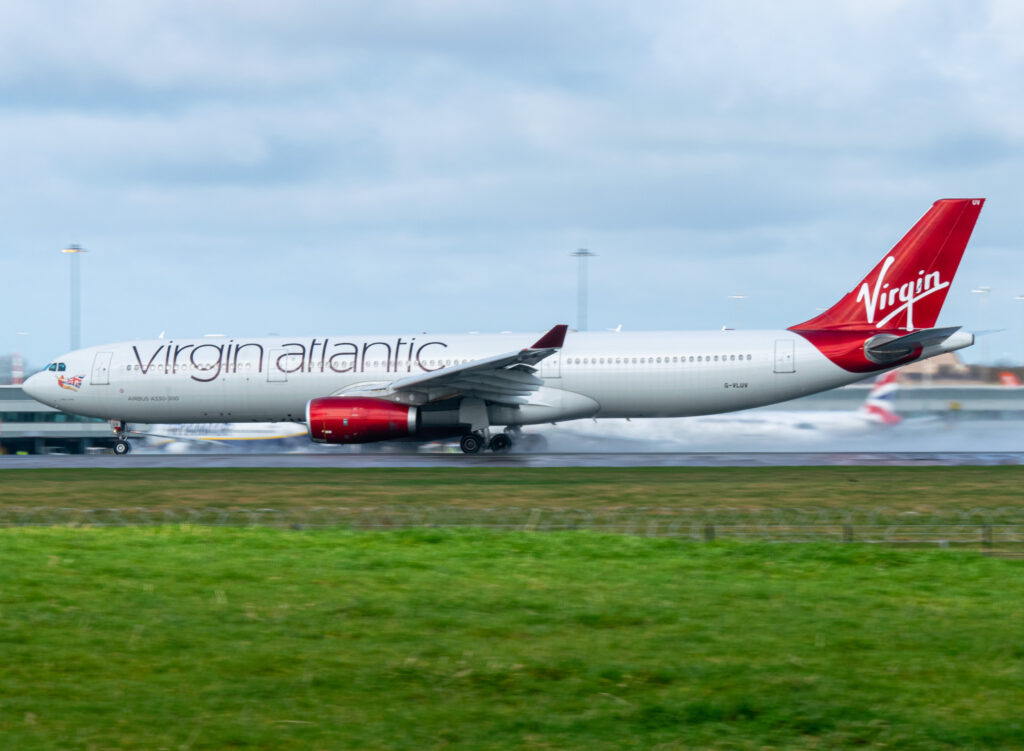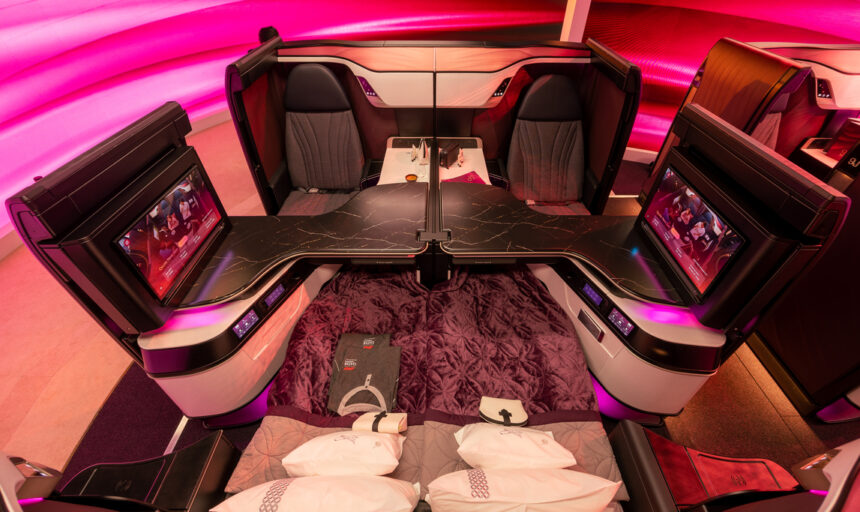LONDON – Since its conception in 1984, Virgin Atlantic has become one of the most renowned airlines in history.
This pioneering airline has set a new standard for how airlines should operate and revolutionized air travel with its commitment to quality customer service, innovative aircraft designs, and luxurious cabins.
In this piece, we will explore the brief history of Virgin Atlantic and revisit some of the milestones that have made it what it is today.
We’ll also look at how it has become an industry leader in customer service and sustainability initiatives. So, sit back and buckle up as we take a journey through the colorful history of Virgin Atlantic!
The Early Days

In 1984, Virgin Atlantic Airways was founded by British entrepreneur Sir Richard Branson and former airline pilot Freddie Laker.
The new airline’s first flight took off from London Gatwick to Newark Liberty International Airport on 22 June 1984.
A rebellious spirit and a focus on customer experience characterized the early days of Virgin Atlantic.
The young airline quickly established itself as a challenger to the established order, winning awards for its innovative approach to customer service.
In the face of stiff competition, Virgin Atlantic has continued to grow and thrive. Today, it is one of the world’s leading long-haul airlines, flying to over 30 destinations worldwide.
Sir Richard Branson and Virgin Atlantic

British entrepreneur Richard Branson founded Virgin Atlantic in 1984.
The Virgin Group of companies had previously started Virgin Records and Virgin Airways (now known as Virgin Australia), so the new airline was initially named “Virgin Atlantic Airways.”
The first flight took off from Gatwick Airport in London to Newark Liberty International Airport in New Jersey on 22 June 1984.
The airline has since grown to become one of the largest long-haul carriers in the world, with a fleet of over 30 aircraft serving destinations across North America, the Caribbean, Africa, Asia, and Australia.
In 2017, Virgin Atlantic carried 5.4 million passengers and reported an operating income of £80 million.
Sir Richard Branson is a well-known business magnate and philanthropist.
He is the founder of the Virgin Group, which controls more than 400 companies in various industries, including travel, leisure, telecommunications, financial services, health care, food and beverage, and entertainment.
In addition to his business ventures, Sir Richard is also an active philanthropist.
He has set up numerous charitable foundations, including the Virgin Unite foundation, which is dedicated to tackling tough social and environmental problems.
The airline today

Founded in 1984, Virgin Atlantic is now one of the world’s leading long-haul airlines, serving over 1.1 million customers a year.
The airline has a fleet of over 30 aircraft and flies to destinations in North America, Africa, Asia, and the Caribbean.
Virgin Atlantic has always been an innovator, introducing new products and services that make flying more enjoyable for passengers.
In recent years, the airline has introduced WiFi on all its flights, as well as power outlets at every seat.
Virgin Atlantic has also been a pioneer in sustainable aviation, offsetting 100% of its carbon emissions since 2007.
Looking to the future, Virgin Atlantic is continuing to invest in new technology and services that will make flying even more enjoyable for passengers.
The airline is currently trialing new in-flight entertainment systems and exploring ways to reduce jetlag.
With its commitment to great service and innovative thinking, Virgin Atlantic looks set to continue being a leading player in the airline industry for many years to come.
Virgin Atlantic’s future

Virgin Atlantic has been through a lot in its 35-year history.
From its early days as a scrappy startup taking on the established British Airways to its recent partnership with Delta, the airline has always been a trailblazer.
Looking to the future, Virgin Atlantic is focusing on becoming a more sustainable airline.
In 2019, it became the first airline to fly commercial flights using biofuel made from waste products like used cooking oil.
They’re also working on electric planes and hope to have them in service by 2030.
As it looks to the future, Virgin Atlantic is also committed to giving back to the communities it serves.
The airline has a longstanding partnership with UNICEF and recently launched the Flying Start program, which raises money for children’s charities around the world.
With a rich history and a bright future, Virgin Atlantic is an airline that will be around for many years to come.
Overall…

Virgin Atlantic has had an incredible journey in the aviation industry, and its history is one of success and expansion.
From humble roots as a small charter operator to becoming a major international player, Virgin Atlantic’s growth story is an inspiring example of how far dedication and ambition can take you.
Whether traveling on their planes or just admiring from afar, it’s clear that the airline will continue to make waves in the world of air travel for many years to come.









